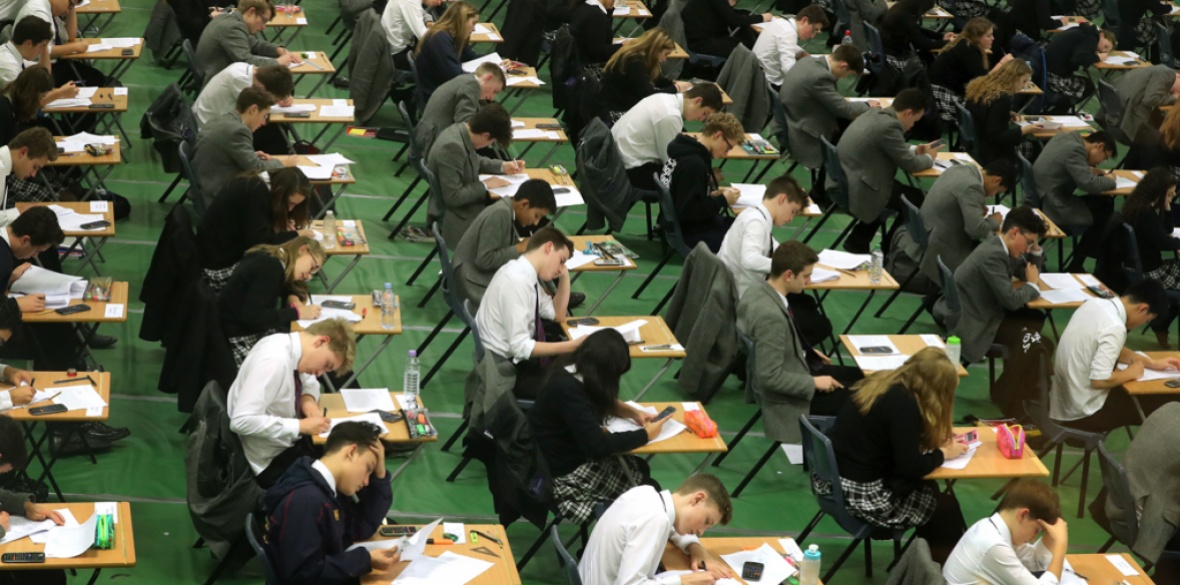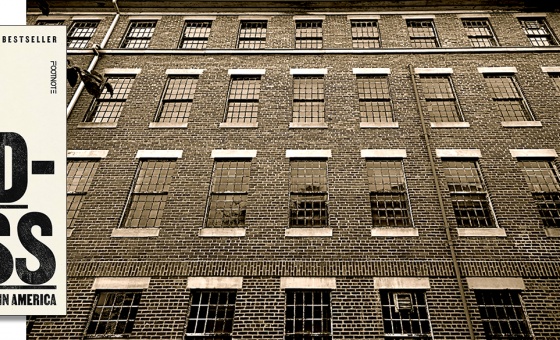This is the last article you can read this month
You can read more article this month
You can read more articles this month
Sorry your limit is up for this month
Reset on:
Please help support the Morning Star by subscribing here
LIKE everything else in a class-divided society, education is a battleground. Earlier answers in this series have argued that what is taught, how and to whom, is a function of the economic system that education has developed to serve.
Over a century-and-a-half ago, Marx and Engels declared: “The ideas of the ruling class are in every epoch the ruling ideas, ie the class which is the ruling material force of society, is at the same time its ruling intellectual force.”
Communists, they stated: “Have not invented the intervention of society in education; they do but seek to alter the character of that intervention, and to rescue education from the influence of the ruling class.”
At the time a fierce argument about the state’s involvement in education was going on within the British ruling class.
On the one side was the view, expressed by the Bishop of London: “It is safest for both the government and the religion of the country to let the lower classes remain in the state of ignorance in which nature has originally placed them.”
On the other side of the argument were employers who wanted a workforce who were literate and numerate enough to follow instructions together with a “labour aristocracy” of skilled workers like mechanics, clerks and accountants to service the increasingly significant and complex manufacturing sector.
All of course needed to “know their place,” so it was important also to include an element of “social economy” (the forerunner of today’s civics curriculum) to counter socialist ideas and to demonstrate why capitalism was not just the best, but the only rational way of organising society.
By the middle of the 19th century, leaving the working class in ignorance was no longer an option.
A chaotic mix of voluntary provision had emerged – church schools, non-conformist schools, charity schools, dame schools and factory schools.
Many children of course received no schooling at all. In 1870, fearful of the emerging trade union movement and of the widened (male) franchise consequent on the 1867 Reform Act, the state was eventually forced to intervene.
In England and Wales, school boards were established to fill gaps in the patchwork of religious and charitable provision which was left unchanged and parents still had to pay school fees. (In the same year, Marx applauded the Paris Communards’ action in making education free and removing all interference by church and state.)
Since then, and particularly following the 1944 Education Act, each advance (free education, compulsory to the age of 16, under the control of local education authorities; the development of the comprehensive system) has been marred by compromise and failure (religious, grammar and private schools remain).
The consequence is that education in England and Wales has lagged significantly behind other developed countries – including Scotland, where its previously high rating on OECD league tables has tumbled in recent years and “developing” countries such as Cuba which, despite the US blockade, spends a higher proportion of GDP on education than any other country in Latin America and the Caribbean and has one of the highest literacy rates in the world.
Worse, since the 1988 Education Reform Act – introduced in the last years of Thatcher’s premiership (who, paradoxically, approved the creation of more comprehensives between 1970 and 1974 than any education secretary before or since), the significant advances made since World War II have been largely reversed.
Selection, often under the guise of academies and “free schools” is increasing, religious schools have increased in number and variety, and local education authorities (along with any semblance of local accountability) have disappeared.
Tuition fees in universities are returning higher education into the preserve of an elite at the same time as producing an indebted (working) class of new graduates. Vocational education is utterly neglected and still degraded as “apprenticeship.”
Britain, or to be more precise, England, has led the Global Education Reform Movement (Germ). Germ is now largely controlled by the corporate world with strong connections to conservative politicians.
The 1988 Act promoted standardisation, testing and accountability to central government, competition and privatisation. Initiated by the Thatcher government in Britain and the Reagan administration in the US, Germ has become a global infection.
In Africa and Asia profit-making, low fee-paying schools run by Pearson and other transnational corporations undermine national education systems.
At last the hegemony of the free market education model is being challenged by the Labour Party under the leadership of Jeremy Corbyn. Labour’s emerging policy on a national education service is a breath of fresh air, and has refocused debates around what children should be taught, how, and by whom.
It includes the aim that education should be free at the point of use, that all barriers to learning are to be tackled, that all areas of skills and learning deserve respect.
It argues for collaboration and co-operation over competition, proposes a restoration of local accountability, of practice being based on evidence, of assessment and inspection being used to support teachers and learners.
Historical injustices are identified: the destruction of the post-war public nurseries and infant schools has thrown early-years education into chaos.
Private education buys privilege. Grammar schools, religious schools and above all so-called “public” schools are used to exclude others and have no place in a society that is building a socialist future. Post-16 and post-18 educational opportunity should be freely available to all.
Manifesto commitments range from childcare to further, higher and vocational education, but are vague or lack detail in many areas.
A consultation on the manifesto closed last June and it is hoped that Labour will be able to flesh out its proposals before the next election.
A further hopeful development is the creation of the National Education Union through a merger between the National Union of Teachers and the Association of Teachers and Lecturers, which will be completed this month will be welcomed by all educators as a huge step towards professional unity.
It also provides a major opportunity to strengthen the campaign for a fully funded national education service with a broad and balanced curriculum for every student, which is so desperately needed.
As an editorial in this paper last month declared: “Labour promises a transformative government in so many ways. Let’s make an education revolution part of that prospectus.”
National Education Union joint general secretary Kevin Courtney will deliver a lecture on Labour’s proposals for a national education service at the Marx Memorial Library and Workers’ School on Tuesday January 22 at 7pm. For details of this and other events, see tinyurl.com/MMLEvents.








